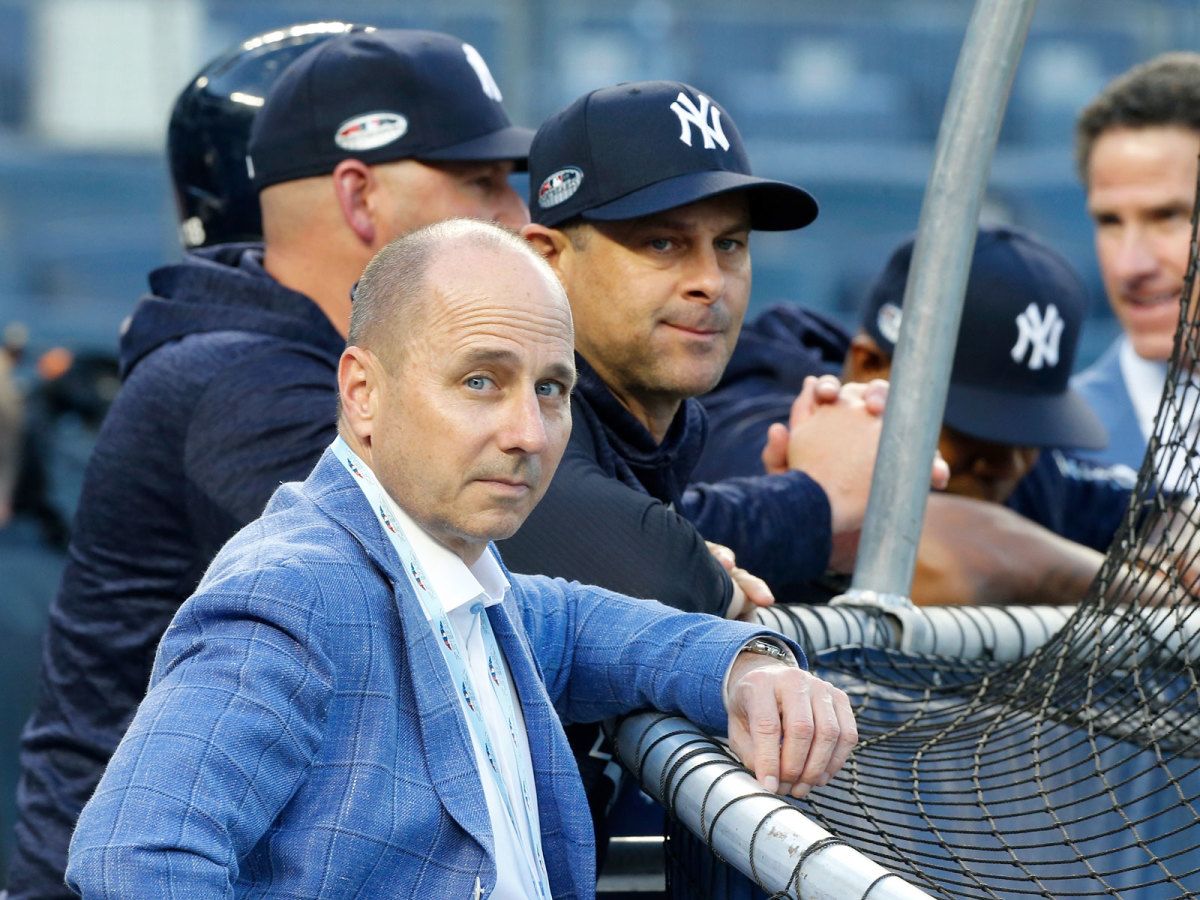The Luxury Tax Won't Bankrupt Your Favorite Team, So Executives Should Stop Complaining About It

For many MLB teams, the luxury tax exists somewhere between the monster under the bed and debilitating fear of nuclear war. Last winter, we heard endless talk about how franchises were desperate to stay under the $197 million threshold, after which came a penalty on every dollar spent. It’s been more of the same this offseason, as your usual big spenders—the Dodgers, Yankees and Cubs, among plenty others—have made constant noise about reining in spending to avoid the $206 million limit. It’s to the point that Los Angeles, the richest team in baseball, has reportedly told investors that it will try to remain under the tax for the next four seasons.
And this all makes sense, because the punishment for exceeding the luxury tax threshold is absolutely brutal—a vicious, coffers-draining extraction. For proof, look at Boston, which, after running a payroll of $239.5 million, was absolutely gouged by Major League Baseball to the tune of [checks notes] uh, what Tyler Chatwood will make next year. Per the Associated Press:
The World Series champion Red Sox owe $11,951,091 in luxury tax for having baseball’s top payroll, according to final calculations by the commissioner’s office obtained by The Associated Press. The only other team that owes is the Washington Nationals, who must pay $2,386,097, their second straight year with a bill.
For going nearly $50 million over last year’s limit, the Red Sox were taxed just shy of $12 million (and will also see their 2019 first-round draft pick fall 10 spots). As the AP notes, only one other team drew a luxury tax bill last year: Washington, which coughed up about $2.4 million for a $205 million payroll. Every other team avoided it, thanks in part to a winter where over half the league slashed payroll. That includes the Dodgers and Yankees, who were both repeat luxury tax offenders—Los Angeles had paid it five straight years, New York 15—and as such paid a heftier fine every time. By getting under the line in 2018, though, each team will now pay a lower penalty rate should they exceed the threshold again next season.
BACCELLIERI: What Does J.T. Realmuto's Market Actually Look Like?
Both the Dodgers and Yankees had been coughed up a fair amount of dough in their taxed years. New York forked over a combined $341 million over the last 15 seasons, for an average of $22.7 million a year. Los Angeles was hit even harder, paying $149 million total since 2013, or just under $30 million annually; the post-2017 bill was $36.2 million. That’s not chump change.
Then again, these aren’t exactly poor teams. Per Forbes’ calculations, the Dodgers raked in over half a billion dollars in revenue in 2017; the Yankees were even higher, at $619 million. Those numbers almost certainly went up this season, just as MLB’s pockets have also bulged over the last several years. (The luxury tax threshold, by the way, isn’t close to keeping pace with the league’s increased revenues; it’s increasing by only a few million dollars each year.) Between individual TV rights deals, the gargantuan new contract the league recently signed with FOX for national broadcasts, money from the sale of BAMTech, and plenty more, teams are making money hand over fist right now. You could triple the luxury tax penalty and it wouldn’t make a dent in the wallets of the super-teams.

Even that financial hit won’t leave a lasting mark. Boston should have no trouble recouping the money gone to the luxury tax thanks to its World Series run. Postseason ticket sales, merchandise, all the extra cash that comes in thanks to a championship—the Red Sox can probably pay off that $11 million bill solely through three weeks of October baseball. Besides, you can’t (or at least shouldn’t) put a price on 108 wins, a division title, a pennant and a World Series victory.
But that’s exactly what teams are essentially doing, and the luxury tax is a big part of that. So long as it exists, teams will make excuses about avoiding it, even when the punishment is relatively light or easily affordable. That’s the goal of it, after all. When MLB instituted the luxury tax—or, in the league’s semi-deceptive branding, the “competitive balance tax”—in 1997, the idea was simple: keep teams from spending too much. Ostensibly, that helps the little fish keep up with the big ones, but in reality, it was an owner-approved plan to lower spending across the game. Less money on payroll means more profit. (It’s not as if we’ve achieved payroll equity, either; the gap between the biggest spending team in baseball last year and the lowest was $150 million.)
TAYLER: The Mets Made a Smart Signing With Wilson Ramos
What’s silly is that this is all over relative peanuts. An $11 million penalty doesn’t even amount to much within baseball itself. That’s basically a season of Todd Frazier, or a pair of middle relievers, or a two-year deal for someone like Francisco Liriano. That money is not the difference between sustainable business and bankruptcy; it’s a rounding error. For the billionaires who run this sport and who get richer every day, it’s inconsequential. The Ricketts family, which owns the Cubs, spent $5.4 million alone through their political nonprofit in 2017 to advance conservative causes and fund Republican political candidates, a year after dropping $7.5 million via that same group. Would an extra $10 million or so really hurt more than that?
So let’s do this going forward with the luxury tax. First, the next time you see a story that mentions how onerous the tax is, or that teams need to make moves with that in mind, remember how just how little money we’re actually talking about. Second, let’s call this what it really is. It’s not a competitive balance tax, and it’s not a luxury tax. It’s a salary cap. And with teams cutting spending by over $100 million in 2018, it’s a cap that’s getting harder and harder with every passing year.
